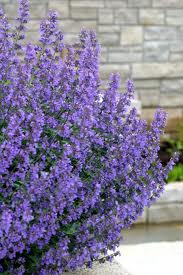By Eve Boe, Lily Hirdler, and Zoe Howell
As summer draws to a close, many of us are squeezing in our last cookouts, patio parties, camping trips, and gardening chores. We’re also noticing the arrival of some uninvited guests, mosquitoes, flies and moths, to name just a few. Most of these ‘pests’ are simply annoying, but others can pose more serious threats. For example, avoiding mosquitoes has been in the news lately due to concerns about the West Nile Virus, which is spread by mosquitoes.
Of course, the presence of insects is not only natural, it’s an essential aspect of a healthy garden. The challenge comes in managing the ‘pests’ – those biting, veggie-decimating, marching-inside-the-house sorts of pests – while doing no harm to the microcosmic health of our garden, or to ourselves, our families, pets and wildlife, and the environment as a whole.
As organic gardeners who believe in treading gently and using natural solutions whenever possible, we’d like to share some ideas about using plants to help manage pests. Some plants are effective pest repellents just by virtue of being planted in the garden, while others need to be used in specific ways to get the desired benefit.
Take mint, for example. Placing fresh mint in pantries helps deter ants, hanging sachets of dried mint in closets helps deter moths and flies (mint tea bags work as well), and rubbing crushed mint leaves on the coats of your cats and dogs can help deter biting insects. One of our staff members has never once seen a flea on any of her three indoor-outdoor cats, possibly because the contained area of the garden that is their ‘rest room’ is filled with a variety of mint plants. Perhaps just walking through the mint garden is enough to cover their coats with mint oils and keep the fleas away.
The downside is that mint is an invasive plant. Instead of planting it directly in a veggie or ornamental garden, you may want to plant it in a contained area, or use it in pots placed around outdoor living spaces or near your herb garden.
The following are examples of plants that can help repel, or at least deter, some common pests. For specific information about how to use each plant to get the pest-deterring benefits you’re seeking, visit the resource links at the bottom of this article.
Plants that help repel mosquitoes:
- Agastache cana (a.k.a. Mosquito Plant)
- Catmint (In a study at Iowa State University, researchers found that the essential oil in catnip, nepetalactone, is 10 times more effective than DEET, the chemical used in most insect repellents)
- Rosemary
- Basil
- Lavender
- Scented geraniums
- Beebalm
- Mint
- Rue
- Marigolds (an annual that needs to be planted every year)
- Cedronella (a tender perennial that may need to be planted each year)
Plants that help deter ticks:
- Lavender
- Garlic
- Pennyroyal
- Pyrethrum (type of chrysanthemum)
- Sage
- Beautyberry
- Eucalyptus
- Mint
Other pest-deterring plants:
- Rue – especially good at deterring flies, Japanese beetles, slugs, fleas, and cats
- Wormwood (Artemisia) – deters a variety of insects including ticks, flies and moths
- Mint – deters beetles, fleas, moths, chiggers, mice, ants
- Rosemary – in addition to mosquitoes, it also deters cabbage moths and carrot flies
As is always the case when making plant selections, it’s important to understand the plant’s benefits and possible hazards. For instance, while rue may be effective at deterring cats it’s actually toxic to cats and dogs (other plants that are toxic to pets are wormwood, eucalyptus, pennyroyal, citronella, tansy, and sweet bay, among others).
Fall is a great time to be thinking about what pest-repelling plants would work well in your landscape, especially near your outdoor living areas. Many of the plants mentioned in this article are available at the Nursery and can be planted now (a few of these plants are out of season or may be sold out so if you’re looking for something specific, give us a call and we’ll check availability). If you have questions or need help selecting plants that will work best for your situation, our knowledgeable staff will be happy to assist you.
Additional Resources
‘Mosquito-Repellent Plants’ from Garden Design magazine
‘5 Easy to Grow Mosquito-Repelling Plants’
‘Herbs That Kill, Control and Deter Fleas, Ticks & Mosquitoes’
‘How to Grow a Pest-Repellent Herb Garden’
‘Garden Plants That Help Fight Fleas Naturally’







